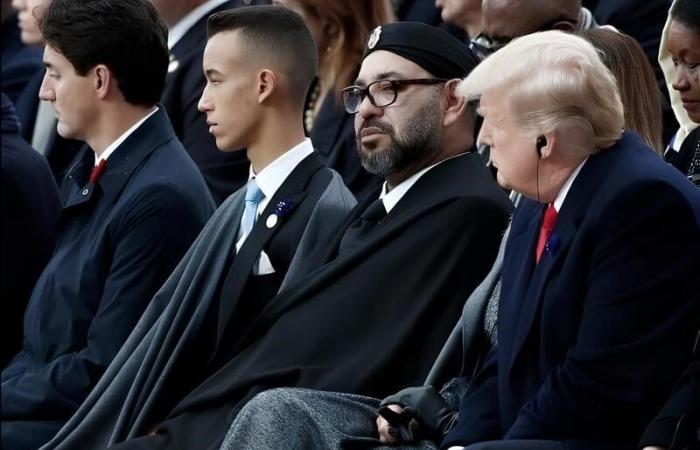The election of Donald Trump for a second term at the White House heralds a reshaping of international relations. Among the countries likely to do well, according to the Atlantic Council, is Morocco, thanks to its strategic positioning and its key economic and diplomatic partnerships.
The senior director of the African Center of the Atlantic Council, Rama Yade, returns in a very recent analysis to the geopolitical implications of the return of Donald Trump, particularly with regard to relations with African countries. As European leaders express concerns, several Middle Eastern nations may seek to solidify already strong partnerships with the United States. Morocco, for its part, could use this new dynamic to strengthen its ties with Washington, building on historic alliances and its increasingly influential role in regional and international affairs.
A historic ally of the United States
Morocco and the United States share a centuries-old relationship dating back to 1777, when the Kingdom was the first country to recognize American independence. This alliance has materialized over the centuries through various partnerships, including a treaty of peace and friendship signed in 1786 and still in force. More recently, in 2004, Morocco was designated a major non-NATO ally.
Under the Trump presidency, these ties were consolidated by the American recognition of Moroccan sovereignty over the Sahara in December 2020, recalls Ms. Yade. However, the Biden administration has not delivered on certain commitments, such as the opening of a consulate in Dakhla. France’s recent support for the Moroccan position could nevertheless give impetus to this dynamic, underlines the analyst.
An ambitious regional vision
Beyond the Middle East, Morocco is pursuing a strategy of outreach in Africa. Since its reintegration into the African Union in 2017, the Kingdom has increased initiatives to establish its influence, particularly in the Sahel. The recent announcement of development projects aimed at facilitating access for Sahelian countries to the Atlantic Ocean illustrates this ambition.
As part of the Atlantic Cooperation Partnership, launched in September 2023, Morocco plays a central role, collaborating with countries such as Senegal and Nigeria. These efforts, combined with its fight against drug trafficking and terrorism in the Sahel, could strengthen its cooperation with the United States, particularly under a new Trump administration, notes the senior director of the African Center of the Atlantic Council.
An economy at the heart of geopolitical issues
The Moroccan economy also benefited from the Inflation Reduction Act (IRA), which favors supplies from countries with free trade agreements with the United States, notes Rama yade. As a result, Chinese companies have invested in Morocco to maintain access to US markets, strengthening employment and technology transfers.
However, if Trump decides to repeal or restrict the IRA, these investments could decline, impacting Morocco’s position. Furthermore, in a context of growing tensions between the United States and China, Morocco will have to balance its relations with these two powers to preserve its equidistance strategy, believes the analyst.
Morocco, an influential African voice
Finally, Ms. Yade believes that the evolution of relations between Trump and the African continent could go through Rabat. With a dynamic economy and a growing presence in Africa, Morocco is today the second largest investor on the continent after South Africa.
While Africa faces multiple challenges – pandemic, energy crises and political instabilities – Morocco intends to play a central role in international discussions. Under the reign of King Mohammed VI, the Kingdom has established itself as an essential strategic partner for Washington, well beyond bilateral issues.






